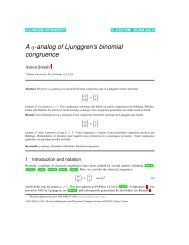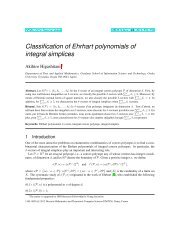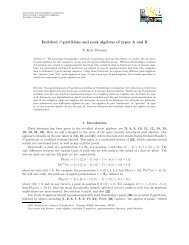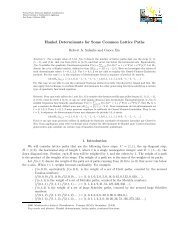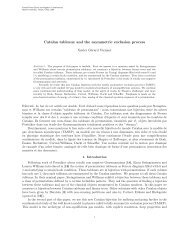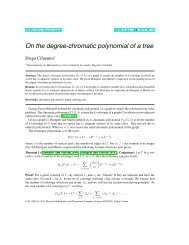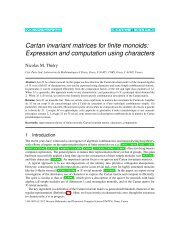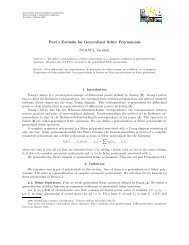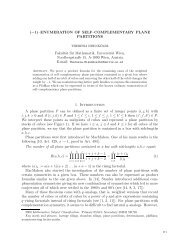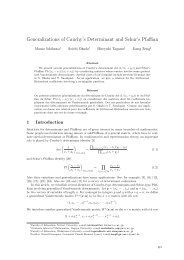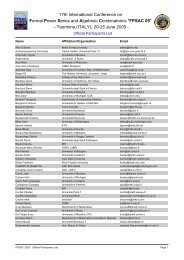Euler's partition theorem and the combinatorics of -sequences
Euler's partition theorem and the combinatorics of -sequences
Euler's partition theorem and the combinatorics of -sequences
You also want an ePaper? Increase the reach of your titles
YUMPU automatically turns print PDFs into web optimized ePapers that Google loves.
Interpretation <strong>of</strong> a (l)<br />
n<br />
Define T n<br />
(l) : set <strong>of</strong> l-ary strings <strong>of</strong> length n that do not contain<br />
(l − 1)(l − 2) ∗ (l − 1)<br />
T (3)<br />
1<br />
= {0, 1, 2} |T (3)<br />
1<br />
| = 3<br />
T (3)<br />
2<br />
= {00, 01, 02, 11, 10, 12, 20, 21} |T (3)<br />
2<br />
| = 8<br />
T (3)<br />
3<br />
: all 27 except 220, 221, 222, 022, 122, <strong>and</strong> 212.<br />
Theorem |T (l)<br />
n<br />
| = a(l) n+1 .<br />
|T (3)<br />
3<br />
| = 27 − 6 = 21



